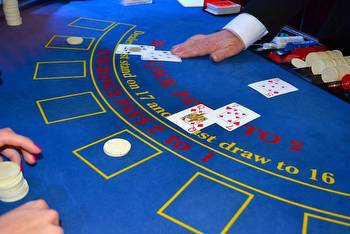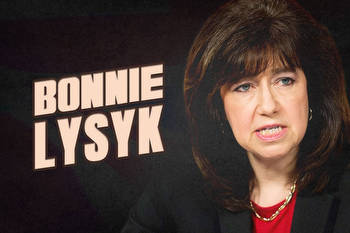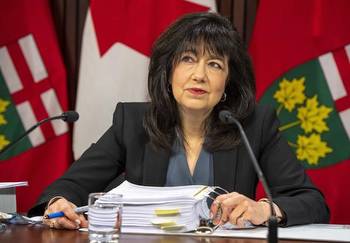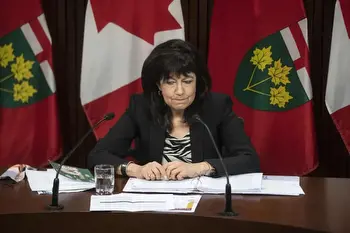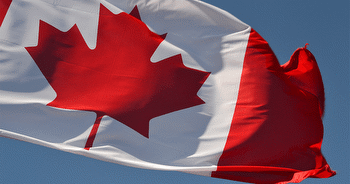Ontario casinos need to improve their anti-money laundering enforcement: auditor general
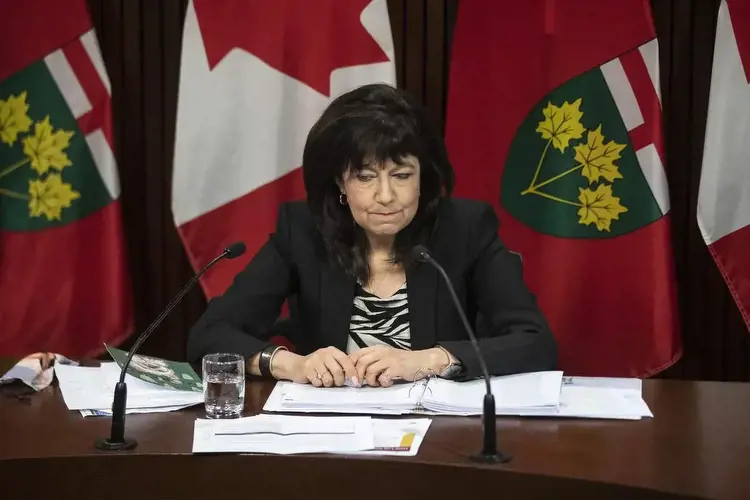
Ontario’s gambling agency needs to double down on efforts to curb money laundering, says the auditor general.
In her annual report to the legislature Wednesday, auditor general Bonnie Lysyk said “reporting of suspicious transactions is low and varies among casinos” overseen by the Ontario Lottery and Gaming Corporation.
As first revealed by the Star, Lysyk hired “mystery shoppers” for a sting operation at four unnamed Ontario casinos to test anti-money laundering measures.
“Casinos could ... improve their anti-money laundering enforcement. As part of the audit, mystery shoppers tested how easy it was to launder money and they were able to obtain casino cheques with large amounts of cash, without anyone confirming where the money came from,” she said in a news release.
But the independent watchdog conceded in her report that the undercover operation met with middling success because some of her agents were nabbed by security.
“The mystery shoppers were not successful at the other two casino sites visited,” it said.
“One site correctly identified the suspicious activity, denied the shopper’s requests for cheques and issued trespass orders barring the individuals from all gaming sites operated by the casino operator.”
Still, Lysyk’s report noted on other occasions “mystery shoppers were ... able to obtain casino cheques for over $10,000 at ... casinos with limited play and no proof of winning.”
Detailing the covert mission for the first time, the auditor said “shoppers were able to obtain casino cheques of over $3,000 with limited play and no proof of winnings from two of the four casinos visited.”
“The purpose of the mystery shopper assignment was to test whether the casinos verified the mystery shoppers’ play and casino wins before issuing cheques of $3,000 or more,” the report said.
Her agents were “able to obtain two casino cheques of $4,900 after entering with $5,000 cash, and $10,600 after entering with $11,000 cash at one casino on two separate occasions.”
“The mystery shoppers entered with amounts ranging from $5,000 to $11,000 in cash at the two casinos, played at table games and slots for a short while (usually 10 to 15 minutes per table or slot machine), and then proceeded to be cashed out with cheques,” the report said.
Overall, Lysyk’s operatives “were able to leave these casinos with almost 98 per cent of the funds they had originally brought in as cash — now these funds could be considered ‘laundered’ because the cheque could be represented as casino winnings.
While the Ontario Provincial Police investigated her team, no charges were laid.
But the ruse infuriated those in the gaming industry who decried the “unethical behaviour.”
“They were clearly instructed to engage in activities consistent with money laundering,” said an industry source, who spoke confidentially in order to discuss the case.
While not technically illegal, it is a violation of Ontario casino policies designed to thwart money laundering. Criminals have long used gambling as a way to launder “dirty” cash.
Illegally obtained money can be “washed” by buying and then cashing in the gambling chips, which can be masked as casinos winnings.
To tackle potential money laundering in provincial gambling houses, the auditor said “the Ontario Lottery and Gaming Corporation (OLG), in conjunction with the Alcohol and Gaming Commission of Ontario, implement for all casino operators the requirements to: obtain proof of source of funds at buy-in for cash and cash-equivalent transactions for amounts of $10,000 or more.”
As well, she recommend they “issue casino cheques only when the funds are verified as a casino win.”
In its response to the auditor, OLG said “to combat the risk of illegal activity across all lines of business, we will expand our efforts to ensure compliance with our anti-money laundering framework.”
“OLG agrees with the need to continuously address money-laundering risks in land-based gaming sites,” the Crown agency said.
“We will work with casino operators to evaluate additional cheque issuance restrictions.”








